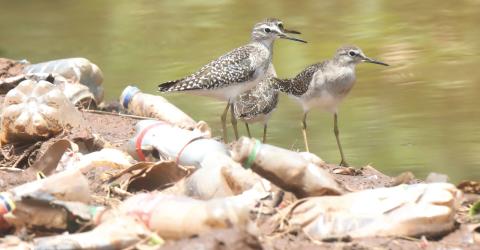
Wetland City Accreditation

Diplomatic Note 2023/6: Wetland City Accreditation – Call for applications
Urbanization is one of the key defining mega-trends of our time. It is transforming where and how people will live in the future. Four billion people, about half of the world’s population live in urban areas today. By 2050 that number is expected to increase as more people move into cities.
Current trends in human settlement potentially pose a major threat for wetland conservation and wise use. As cities grow and demand for land increases, the tendency is to encroach on wetlands. They are often viewed as wasteland to be converted for other purposes including being used as dumping grounds.
Yet when preserved and sustainably used, urban wetlands can provide cities with multiple economic, social and cultural benefits. During storms, urban wetlands absorb excess rainfall, which reduces flooding in cities and prevents disasters and their subsequent costs. The abundant vegetation found in urban wetlands, acts as a filter for domestic and industrial waste and contribute to improving water quality.
Urban wetlands are prize land not wasteland and therefore should be integrated into the development and management plans of cities.
Background and context
The 172 Contracting Parties to the Convention have agreed to the conservation and wise use of wetlands in their territories. Recognizing the importance of cities and urban wetlands, the Convention has introduced a Wetland City accreditation scheme (Resolutions- XII.10, XVI.10). This voluntary scheme provides an opportunity for cities that value their natural or human-made wetlands to gain international recognition and positive publicity for their efforts.
The Wetland City Accreditation scheme will encourage cities in close proximity to and dependent on wetlands, especially Wetlands of International Importance, to highlight and strengthen a positive relationship with these valuable ecosystems, for example through increased public awareness of wetlands and participation in municipal planning and decision-making. The Accreditation scheme should further promote the conservation and wise use of urban and peri-urban wetlands, as well as sustainable socio-economic benefits for local people.
Accredited Wetland Cities
List of 31 newly accredited Wetland Cities, announced at the 64th meeting of the Standing Committee on January 24, 2025.
Argentina: Trelew
Belgium: Mechelen
Botswana: Kasane-Kazungula, Shakawe
Chile: Valdivia
China: Chongming, Dali, Fuzhou, Hangzhou, Jiujiang, Lhasa, Suzhou, Wenzhou, Yueyang
France: Abbeville, Arles, Hampigny
India: Indore, Udaipur
Iran (Islamic Republic of): Babol, Bandar Kiashar, Gandoman
Japan: Nagoya City
Morocco: Mehdya
Philippines: Balanga City
Poland: Poznan
Republic of Korea: Gimhae, Mungyeong
Serbia: Novi Sad
Switzerland: Canton of Geneva
Zimbabwe: Victoria Falls